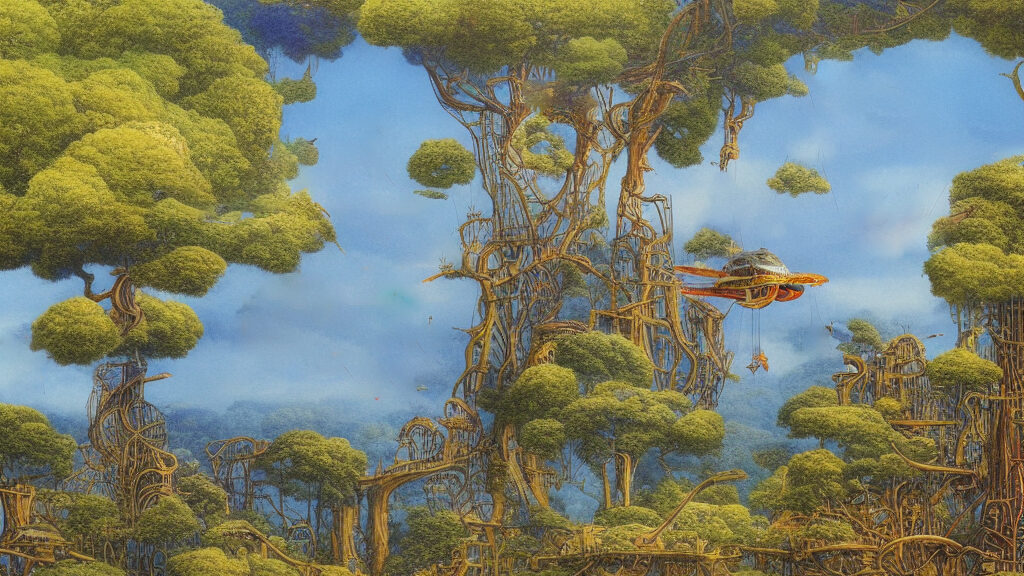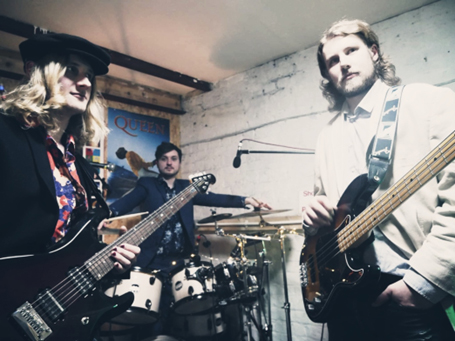Dominic Sanderson, a multifaceted British composer, guitarist, vocalist, and songwriter, has garnered significant acclaim for his latest opus, “Impermanence,” an exquisite manifestation of progressive rock musicianship that stands as one of the finest releases of 2023.
Sanderson’s “Impermanence,” has captivated the collective imagination of progressive rock enthusiasts owing to its remarkable craftsmanship and sonic finesse. The album showcases Sanderson’s virtuosity across various musical dimensions, seamlessly blending intricate guitar melodies, sublime vocal performances, and masterful songwriting.
We spoke with Dominic Sanderson to learn more about this rising talent.
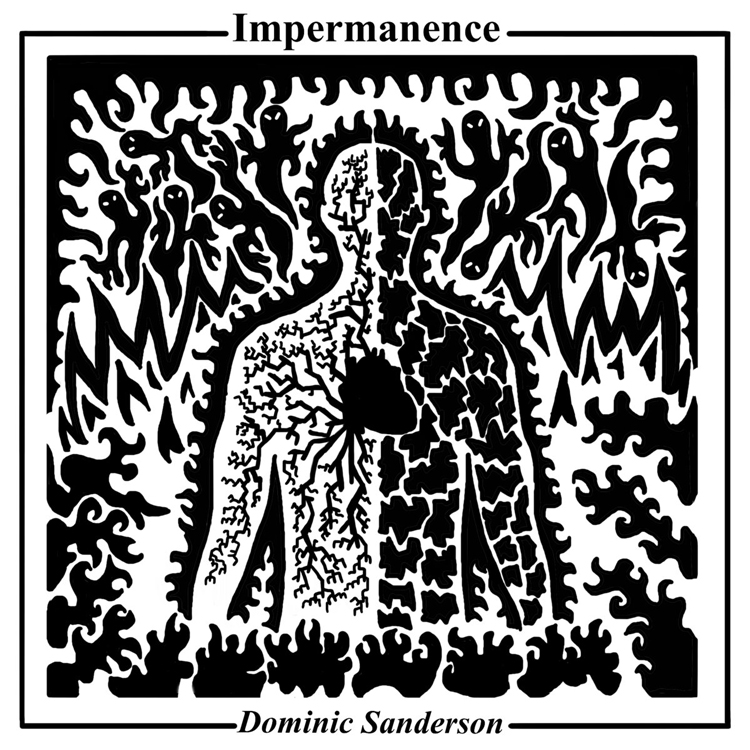
Share with us some of your most cherished musical moments that have left a lasting impression on you.
It is very difficult to name just one, and one that had a bigger impression than the rest. I’m not the most confident live performer but there have been a couple of live performances with my band in Liverpool that have been memorable, not only because the music is a joy to play but because the people in the band are wonderful musicians and have the best personalities. However, perhaps a great moment for me was when Prog Magazine wrote a page on me in their Limelight section last year and then recently they published a glowing review of Impermanence which made me incredibly happy. Hopefully, the best is yet to come…
Can you recall the very first melody you learned to play? How did it shape your musical journey?
Perhaps not the very first, but I remember learning a lot of Thin Lizzy songs when I was in the early stages of learning the guitar. I have always been more interested in playing melodies over chords and so the majestic, acrobatic twin lead lines, as well as the robust riffs in Thin Lizzy’s music, appealed to me greatly. Learning these complicated parts trained my fingers for later challenges and put me in good stead for when I started improvising my own solos.
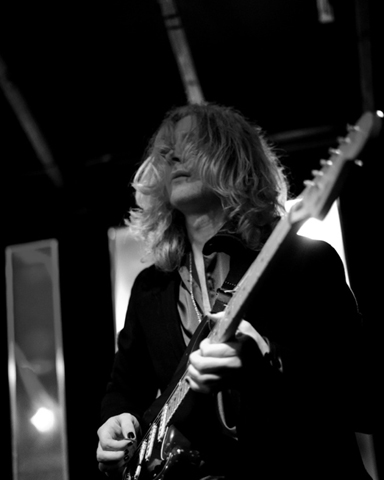
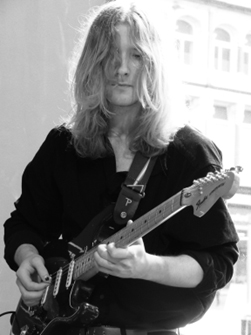
When it comes to your music, what do you believe are the key elements that make it truly distinctive and authentic?
A lot of modern progressive rock is either a very watered-down version of the original symphonic progressive rock of the 70s, or it is a glorified metal band mislabelling themselves as prog. Nevertheless, with my music, I am aiming to create a whole new set of progressive compositions that are just as full-bodied and wildly unpredictable as the progressive sounds of the 70s.
I wanted to make sure that each song had its own personality, and its own distinctive sound so that not every track sounded the same; I find with a lot of modern music releases, the music is bland because there is no variety within albums. The variety within Impermanence is clear; for example, ‘The Twisted Hand of Fate’ is the album’s heavy track and incorporates some elements of jazz. Meanwhile, ‘Is There Calm Amongst This Chaos?’ is perhaps the most traditional in terms of a symphonic progressive sound, ‘An Empty Room’ is a solo acoustic guitar piece, ‘A False Sense of Promise’ is more avant-garde/experimental and the final 20-minute epic begins with a 3-minute choral piece inspired by György Ligeti’s ‘Lux Aeterna’.
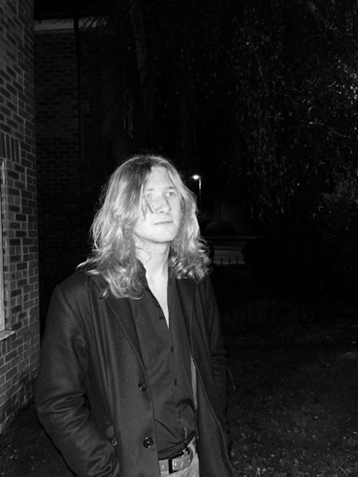
Who are the musical forces that have had the biggest effect on your artistic style and sound? Whose influence can be heard in your compositions?
Unsurprisingly, it is the greats of the 70s that inspire me most. Bands such as Genesis, ELP, Camel, Gentle Giant, Pink Floyd, Yes and – perhaps most evidently in my music – King Crimson. The dissonance and musical brutality of Crimson’s output can definitely be heard in my own music, which often leans towards the discordant and fragmented and aims to arouse discomfort. However, Steven Wilson is perhaps my all-time favorite artist, and I get a lot of people comparing my music to his. Albums such as The Raven That Refused to Sing and Hand. Cannot. Erase are modern-day prog masterpieces. When I was writing Impermanence, these albums were in the back of my mind, as well as albums by Scandinavian prog bands: Wobbler, Anglagard, and Anekdoten. These modern-day prog bands know exactly how to compose genuine, hard-hitting prog rock, and they champion over many current British and American prog acts.
How do you approach the process of songwriting? What inspires your creative flow, and how do you translate those ideas into music?
All of my compositions start out as demos on Logic. As a guitarist, a lot of these demos begin life as a melody or a chord progression I have stumbled upon whilst messing around on the guitar. I never approach songwriting from a theoretical perspective; my music theory is incredibly basic and never found learning about the theory of music very compelling. To that end, I write music instinctively, relying entirely on my ears to guide me – if I like how something sounds, I’ll explore it regardless of what is going on in terms of theory. I’m not a keyboard player but when it comes to adding keys to my demos, I just plink and plonk on my little midi keyboard in a scurried, haphazard fashion and always come up with something worthy accidentally.
We’d love to hear about your initial experiences with recording and how your music has evolved since then. Take us through the journey of your musical growth.
I had been in recording studios prior to recording my own music, but I am certainly not a whizz with all of the production stuff. I began writing and recording my own music as a solo artist when COVID hit. I was in my second year of university studying Music and English Literature at the University of Liverpool at the start of the pandemic, and I had to return to my hometown of Wakefield as a result of the lockdown. With so much time on my hands, I decided I wanted to realize my goal of one day writing some of my own prog rock-inspired music and with the help of some primitive equipment, I managed to write and record an EP titled Discarded Memories.
When I returned to uni, I wanted to record a full-length album that had better sound quality, and with the aid of some excellent musicians, my debut album Impermanence was carefully put together. With this release, I wanted everything to be as organic as possible, the next logical step up from what I did with Discarded Memories which was largely programmed in the case of the drums and other bits. Luckily, I have some wonderful friends who share a similar liking for prog rock and are virtuosos on their instruments. Tristan Apperley (bass, strings, synth, Mellotron, Hammond organ) and Jacob Hackett (drums, percussion, backing vocals) and Aaron Butterworth (production, cello, keys) contributed a great deal to the album and I consider them to be the main members of the band. But there were multiple guest musicians that featured on the album, all of them students at the Uni of Liverpool and all of them brilliant musicians who gave up their time to help me enhance my music, something that could not have happened during COVID when I did Discarded Memories.
Apart from the guitar, your primary instrument, what other musical tools and instruments do you incorporate into your performances to create a unique sonic experience?
Although we haven’t been able to perform as a band yet, when I was recording Impermanence, I knew exactly what instruments I wanted. Keyboards are incredibly important in any prog band and so it was vital that I had Mellotron and Hammond organ on the album as well as other keyboard sounds. In some cases, I came up with the parts on my little midi keyboard before I asked someone who could actually play to record the parts. My other main aim was to incorporate layered vocal parts wherever I could. I am more interested in using the voice as an instrument rather than as something to communicate lyrics, as important as that is. Therefore, you’ll hear harmonically rich vocal harmonies and interweaving vocal melodies at points on the album. I’ve never really rated myself as a great vocalist and I really hate hearing my singing voice played back to me. However, composing these dense vocal arrangements is probably my favorite part of the process.
Are there any specific themes or messages that you aim to convey through your music? What drives you to explore those concepts?
There is no message as such but I would hope that the album arouses a general melancholia. I find that sad music is more compelling than upbeat, happy music (don’t worry, I am a very happy person)! The lyrics for the album, for example, are very gloomy and despondent, suiting the harrowing and dramatic turns in the music perfectly. My dad was responsible for the lyrics and the album’s artwork, and exceeded expectations on both fronts. It is thanks to my dad that I have such a well-rounded and excellent taste in music; without him, I would not have been turned onto prog rock as early as I was. I must also thank my mum, whose taste in music is equally as impressive.
As an artist, what role do you believe music plays in society? How do you hope your music contributes to the world or impacts your listeners?
Art, including music, has many roles: it can be used as a vehicle for social commentary, it can heal people and it can simply be there for pleasure. In my case, the art is there to challenge, confront and question; this is not an album that can be understood after one fleeting listen. Rather, the album encourages repeated listening in which, hopefully, the songs uncover themselves a little bit more after each spin.
In your opinion, how has technology influenced the way you create, produce, and distribute your music? How do you navigate the ever-evolving digital landscape as a musician?
The technology available is both a blessing and a curse. Having Logic on my laptop enables me to record demos whenever I want without having to go to a studio; I can just plug my guitar into my little interface and I am away. Furthermore, it is incredibly easy to distribute music onto streaming sites, Bandcamp being the real hero of modern music with its incredible accessibility and ethical stance. However, this is also a problem; the world of music is over-saturated and there is a lot of uninspired music out there. But there is also a lot of great music out there that I have to compete with as a result of how easy it is to release music.
Have you ever contemplated collaborating with other musicians or ensembles? If so, who would be your dream collaborators and what kind of musical magic do you envision creating together?
Without coming across as superior or arrogant, I’m not really interested in collaboration. I’ve never been a team player, and I like to compose alone; I usually have a set vision for how a song will begin and end. Adding the opinions of other people threatens to spoil that vision. This isn’t to say that I do not value the parts that other musicians contribute to my songs; I am not a bassist, drummer, or keyboardist and I don’t pretend that I am, therefore I could not come up with some of the compelling parts that these musicians add to my music, such as they did for Impermanence. I definitely need other musicians, but only after I have finished the composition of the song.
For beginners who feel anxious about venturing beyond the realms of mainstream pop music, what words of wisdom or encouragement would you offer them to pursue their musical aspirations?
I’m not sure what I would say other than – just do it! If you’re passionate enough about something, regardless of whether or not it is commercial, you should aim to realize your vision. Someone out there will like whatever you come up with, and I, for one, would definitely listen.
When you’re not actively engaged in making music, how do you recharge and find inspiration? Are there any hobbies or activities that fuel your creativity?
I am an avid record collector and so I spend a lot of time in record shops flicking through the racks and taking in the atmosphere. And obviously, when I’m not shopping for records, I’m listening to them at home with a beer, transporting myself to a time before I was born and coming up with my own musical ideas inspired by what I am hearing.
What plans do you have in store for the upcoming months? Can you share any sneak peeks into your musical projects, performances, or creative endeavours that we can look forward to?
After putting off the idea for a while, I would like to try and bring these compositions to the stage with my excellent band. People who have listened to my album have been asking about live dates, and I’ve even had live offers. With this in mind, it feels like the right time to try and translate some of the songs for a live setting. I also have a new album of acoustic, folky material in demo form ready to be recorded as I am also very fond of 70s folk acts such as John Martyn, Nick Drake, Cat Stevens and Roy Harper to name a few. And finally, more prog is in the works…
